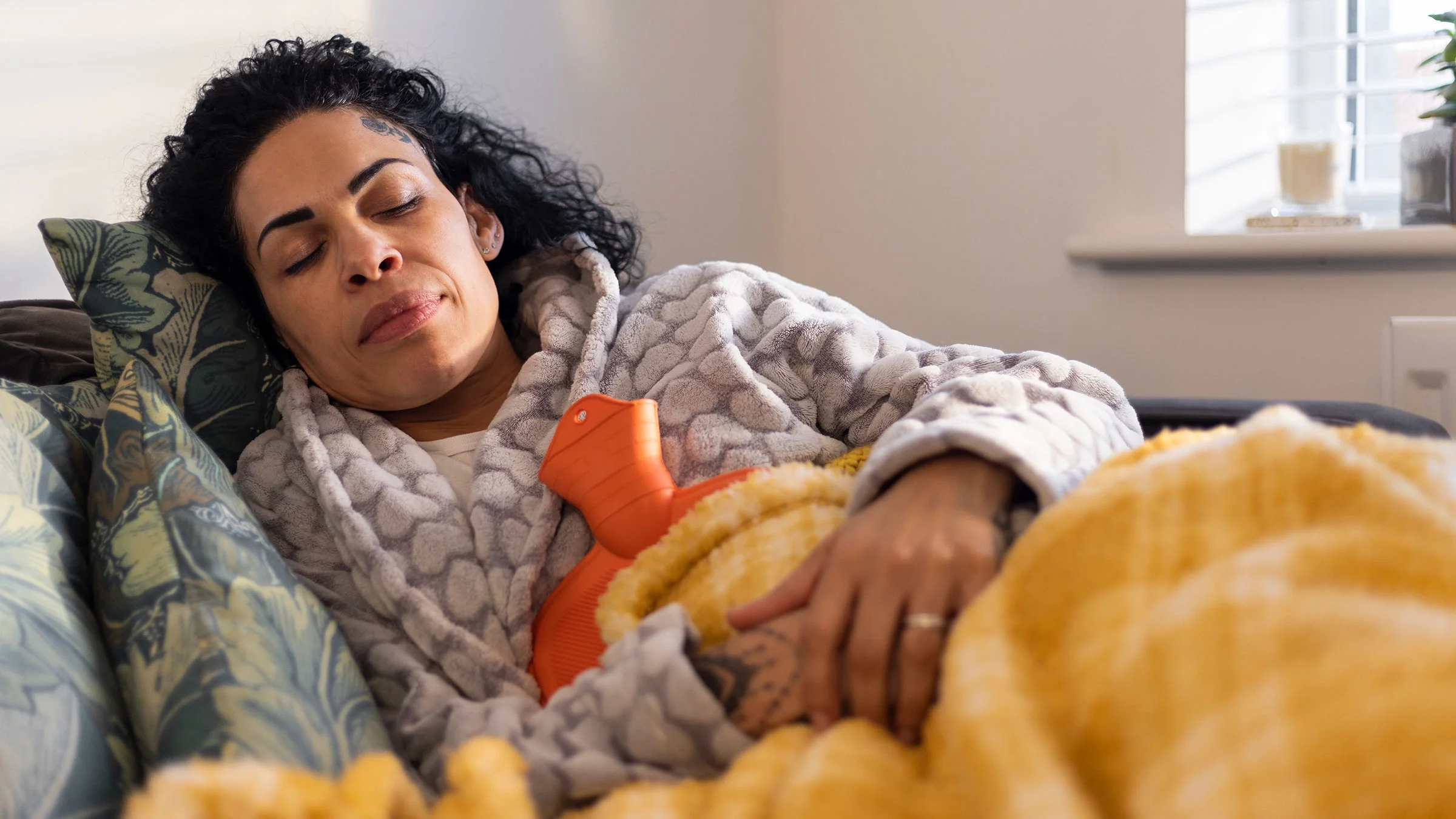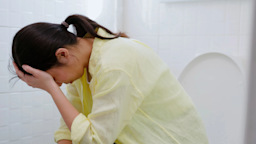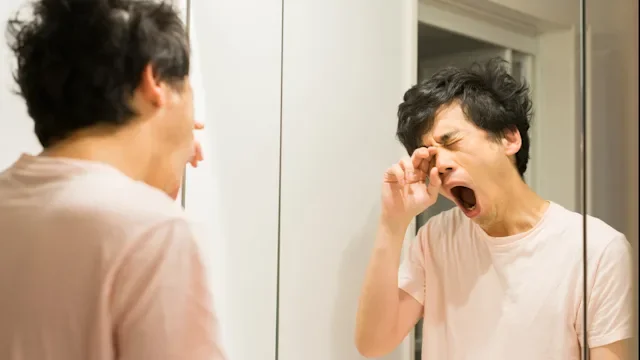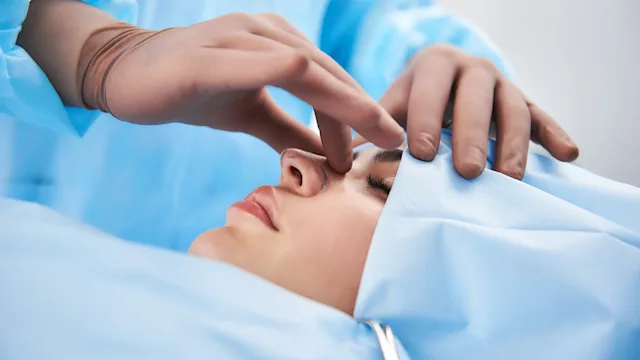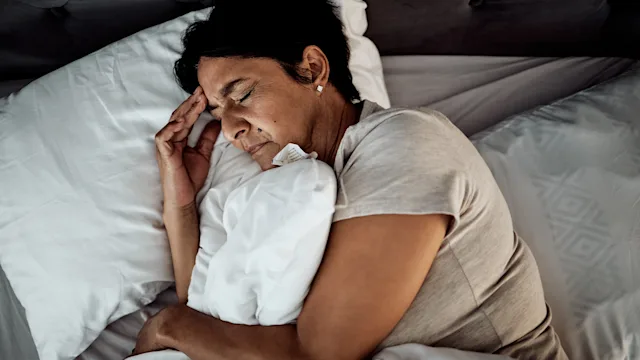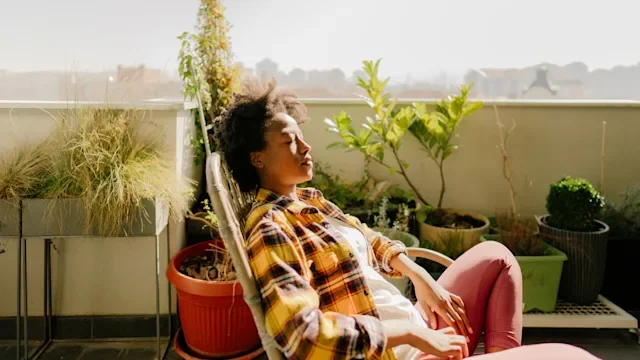Key takeaways:
UTI symptoms, like an urgent need to urinate, may be more noticeable at night without the distractions of a busy day.
Emptying your bladder before bed and wearing loose-fitting pajamas can help you stay comfortable and sleep better.
UTIs are treated with antibiotics, so talk with a healthcare professional about any concerning symptoms, especially if they’re keeping you up at night.
A urinary tract infection (UTI) is already frustrating enough. But when it screws with your sleep, it can become a total drag.
UTIs happen when bacteria enter the kidneys, ureters, bladder, or urethra. They’re much more common in women. In fact, more than half of women will have at least one, and at least 40% will have more than one.
Telltale UTI symptoms include:
Pain or burning when urinating
Urinating frequently
Feeling like you need to urinate when you don’t
Pressure in the lower abdomen
Blood in your urine
A change in the smell or appearance of your urine — it might look cloudy or milky
Search and compare options
These symptoms are never pleasant. But they can also make it harder to fall or stay asleep.
UTI relief tips for better sleep
Fortunately, there are ways to sleep better with a UTI. Consider the following tips when UTI discomfort leaves you tossing and turning.
1. Hydrate throughout the day
A UTI can cause pain or burning when you pee. But staying hydrated is crucial to flush out your bladder during the day. Drinking water helps prevent the bacteria causing your infection from hanging out and reproducing, which could worsen your symptoms.
The amount of water you need depends on your activity level, body weight, and other factors. But experts suggest aiming for these targets:
3.7 L (125 oz) of water daily for men
2.7 L (91 oz) of water daily for women
2. Limit fluids before bed
That said, you’ll want to reduce fluids 1 to 2 hours before bed. This can reduce those middle-of-the-night trips to the bathroom that disrupt your sleep.
Antibiotics are recommended if you have a UTI. But can you get rid of a UTI without antibiotics? Find out what the research says.
Stay hydrated to support UTI recovery. Learn what to drink when you have a UTI, plus which beverages to avoid.
Understand UTI symptoms. Three women describe what a UTI feels like, their treatment, and what they do to prevent further infections.
3. Empty your bladder before bed
The frequent urge to urinate when you have a UTI sends you rushing to the bathroom, only for very little pee to come out. But you shouldn’t try to hold your pee when you think you have a UTI. Holding it may increase your risk of UTIs. It could also worsen your symptoms if you’re not already taking antibiotics.
During the day, try to empty your bladder every 2 to 3 hours. At night, be sure to empty your bladder fully one last time before bed. Ideally, you’ll be sleeping straight through the night and, therefore, peeing less frequently.
4. Avoid food and drinks that irritate your bladder
You might not be in the habit of considering your urinary tract when you plan dinner. But, some foods can irritate your bladder and make UTI symptoms feel worse at night.
Read more like this
Explore these related articles, suggested for readers like you.
Try to limit or avoid the following foods and drinks while recovering from a UTI:
Chocolate
Spicy or acidic foods and drinks
Caffeine
Alcohol
5. Try over-the-counter pain relievers
It’s important to see a healthcare professional if you think you have a UTI. They can prescribe an antibiotic to get rid of the bacteria that caused the infection.
In the meantime, a short course of over-the-counter (OTC) medications –– like ibuprofen or acetaminophen –– might help ease UTI pain so you can drift off more easily.
6. Use a heating pad
A heating pad on your belly or back can help ease UTI pain, too. Try sitting or lying down with the heating pad on your stomach for 15 or 20 minutes before bed. Make sure you turn it off before falling asleep to prevent skin burning or irritation.
7. Wear loose, comfortable clothes
If abdominal pressure is part of the reason you can’t sleep with a UTI, you might want to change your sleepwear. Tight clothes can increase pressure on your already sensitive midsection. Opt for loose-fitting, flowy pajamas until you feel better.
8. Adjust your sleep position
You don’t want your sleep position to put extra pressure on your stomach, either. Avoid sleeping on your stomach while you recover. Instead, try one of the following sleep positions to minimize UTI pain and discomfort:
On your back
On your back with a pillow under your knees
On your side with a pillow between your knees
Do UTI symptoms get worse at night?
Not exactly. Your UTI symptoms don’t necessarily worsen just because it’s nighttime. But they may feel worse or more noticeable at night. There may be several reasons for that, including:
Fewer distractions: You probably have fewer distractions at night. Think about how stress, worries, and racing thoughts can take over as soon as you hop into bed because you’ve been too busy to notice them during the day. Similarly, you might not notice UTI symptoms like frequent urination during a busy work or school day.
Sleep position: Maybe the pressure in your abdomen felt like your usual bloating until you slipped into looser pajamas or got into bed. Certain positions, such as sleeping on your stomach, can increase pressure on the bladder and worsen UTI discomfort.
Less urine production: Your body naturally produces less urine at night. That can make your pee more concentrated, irritating the bladder and urethra. Or, you might wake up more often during the night to use the bathroom, making it difficult to sleep with a UTI.
When should you see a healthcare professional?
Talk with a healthcare professional if you have any UTI symptoms, including those that feel worse at night or make it hard to sleep. Although a UTI isn’t usually cause for major concern, it can lead to serious issues if left untreated.
You should also talk with a healthcare professional if you spike a fever, get chills, feel back or side pain, or start vomiting. These can all be signs the infection has spread to your kidneys.
A healthcare professional will take a urine sample and do blood work if necessary. If you have a UTI, you’ll be prescribed antibiotics. Always finish all of the medication. If you stop taking the antibiotics when you start feeling better –– usually after a day or two –– the infection could come back and be harder to treat.
Frequently asked questions
Yes, a UTI can feel worse when lying down. If you’re lying down to sleep, you may have fewer distractions, which can make your symptoms seem worse. And if your abdomen already feels painful or tender because of the UTI, lying on your stomach could worsen those symptoms.
Rest won’t cure a UTI, but it can be helpful. Taking care of yourself — including getting enough sleep, eating a balanced diet, and exercising regularly — can help you avoid and recover from infections.
Yes, a UTI can feel worse when lying down. If you’re lying down to sleep, you may have fewer distractions, which can make your symptoms seem worse. And if your abdomen already feels painful or tender because of the UTI, lying on your stomach could worsen those symptoms.
Rest won’t cure a UTI, but it can be helpful. Taking care of yourself — including getting enough sleep, eating a balanced diet, and exercising regularly — can help you avoid and recover from infections.
The bottom line
Uncomfortable UTI symptoms like the need to urinate frequently and pressure in your abdomen can make it hard to fall or stay asleep. Plus, without the distractions of the day, you might be more likely to notice your discomfort and have a harder time resting peacefully.
Fortunately, there are things you can do to make it easier to sleep with UTI discomfort. Empty your bladder before bed, wear loose-fitting pajamas, and consider pain medications or a heating pad to make yourself as comfortable as possible while waiting for your antibiotics to kick in.

Why trust our experts?


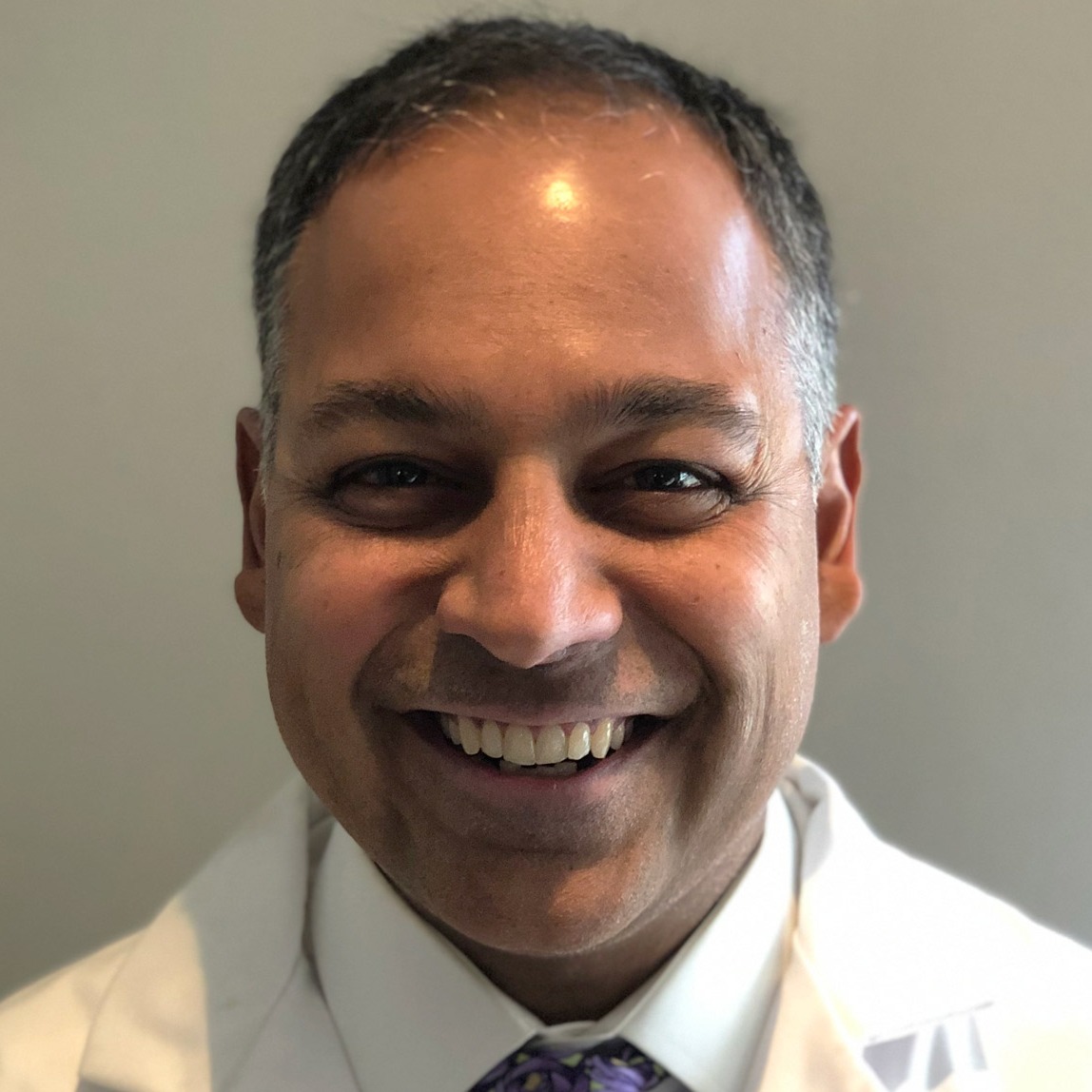
References
Berg, S. (2023). What doctors wish patients knew about UTI prevention. American Medical Association.
Caruso, C. C., et al. (2024). Improve sleep: Tips to improve your sleep when times are tough. Centers for Disease Control and Prevention.
Czajkowski, K., et al. (2021). Urinary tract infection in women. Przegla̜d Menopauzalny.
Jagtap, S., et al. (2022). Comprehensive assessment of holding urine as a behavioral risk factor for UTI in women and reasons for delayed voiding. BMC Infectious Diseases.
MedlinePlus. (2023). Urinating more at night.
MedlinePlus. (2023). Urinary tract infection in women - self-care.
Office on Women’s Health. (2021). Bladder pain. U.S. Department of Health and Human Services.
Office on Women’s Health. (2021). Urinary tract infections. U.S. Department of Health and Human Services.
State of New Jersey Civil Service Commission. (2019). Employee advisory service newsletter.
U.S. Food & Drug Administration. (2022). Do not use certain Mighty Bliss electric heating pads due to risk of injury: FDA safety communication.
Weiner, L. et al. (2021). Investigating racing thoughts in insomnia: A neglected piece of the mood-sleep puzzle? Comprehensive Psychiatry.

